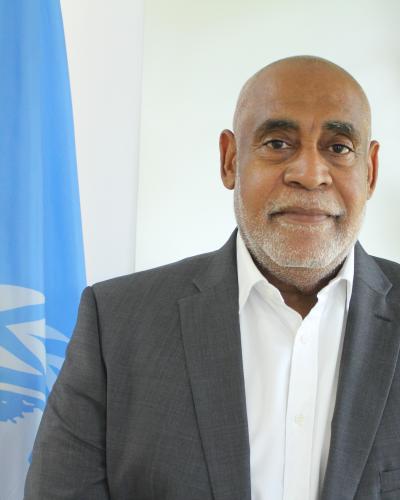Building a resilient Ghana means putting people first and leaving no one behind

Traveling across the country, either to observe critical interventions by the UN in Ghana in some parts of Ghana, or for leisure to savor the rich taste of culture, customs, and cuisine, it is unquestionable that Ghanaians are warm, hospitable and above all, resilient. Throughout my engagement as the Resident Coordinator with the leadership and people of Ghana across various spheres, I have observed this country’s strong desire and commitment to build a resilient and self-reliant nation, one that is just and equitable with a peaceful and inclusive disposition. This vision is encapsulated in the country’s 1992 Constitution, enjoining all governments to: “... take all necessary action to ensure that the national economy is managed in such a manner as to maximize the rate of economic development and to secure the maximum welfare, freedom and happiness of every person in Ghana and to provide adequate means of livelihood and suitable employment and public assistance to the needy.” (Article 36, Clause 1)
Admirably Ghana is making gains even in difficult times. Despite the impact of the COVID-19 pandemic, Ghana has relatively managed to remain steady, defying global economic trends to achieve a positive GDP growth rate in 2020 - a feat attributable to effective policies and measures and made possible by ordinary Ghanaians – tilling the soil each day to make sure there is enough and healthy food for all; transporting the produce, people, goods and services across the country; tutor the Ghanaian student from nursery through to University; apply themselves in resilient small businesses that contribute to livelihoods and growth; a youth population that is keen to play its part, and those who work to make sure the systems function as they ought to; and who maintain and keep the peace that we enjoy.
We must recognise, respect, acknowledge and appreciate every single Ghanaian for their contribution to the process of development and create prosperity and equal opportunity for all regardless of where they live, their gender or race, or their religious, cultural or ethnic background. It is on this basis that the Universal Declaration of Human Rights (UDHR) was adopted in 1948 by the United Nations General Assembly. Read further.





